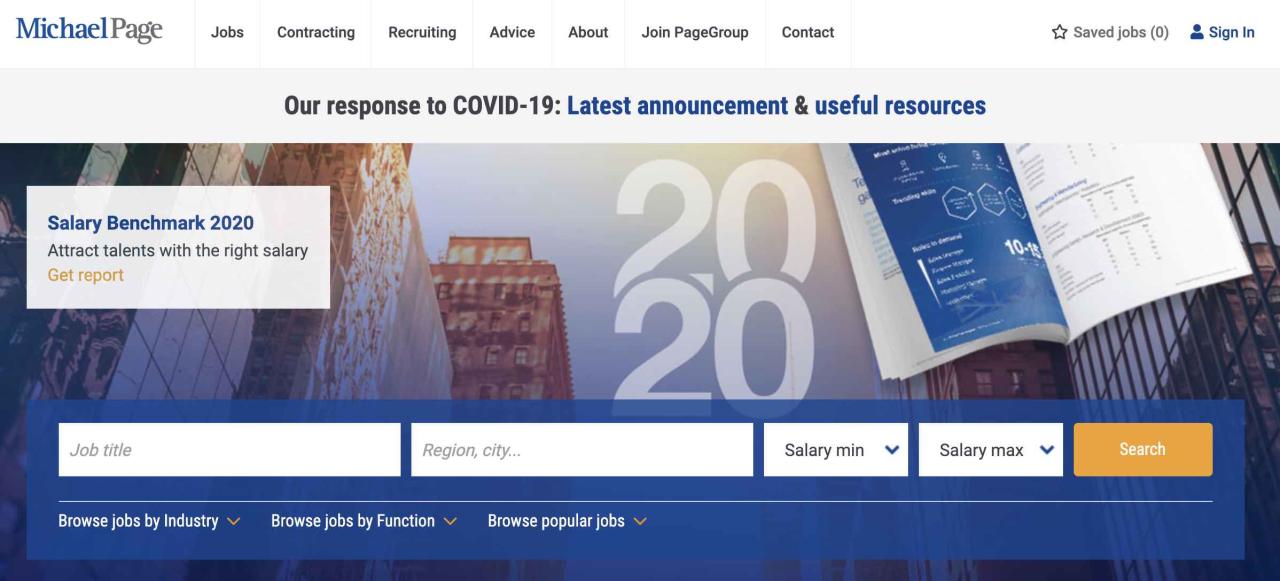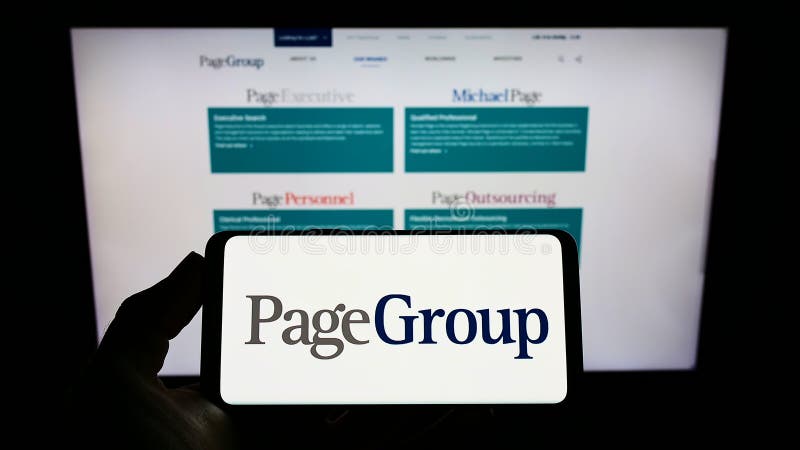
Capgemini Leaks Data of Recruitment Firm PageGroup
Capgemini leaks data of recruitment firm PageGroup – Whoa, that headline grabbed me! This massive data breach isn’t just another tech story; it’s a real-world example of how easily sensitive information can be compromised, even within established corporations. We’re talking potential exposure of candidate CVs, client details, and who knows what else. The fallout could be huge for both Capgemini and PageGroup, impacting not only their reputations but also the trust placed in them by countless individuals and businesses.
This post dives deep into the details, exploring the breach, the responses, and what this means for the future of data security in the recruitment industry.
We’ll examine Capgemini’s official response (or lack thereof!), analyze PageGroup’s damage control efforts, and consider the potential legal repercussions. We’ll also explore the security vulnerabilities that might have been exploited, and, crucially, what measures could be implemented to prevent similar incidents. Think of this as a digital autopsy, trying to understand what went wrong and how we can learn from it.
Data Breach Overview

The alleged data breach involving Capgemini and PageGroup highlights the vulnerabilities within even large, established organizations. The incident reportedly involved the unauthorized access and potential leakage of sensitive data belonging to PageGroup, a global recruitment firm, through a compromised Capgemini system. While the exact details remain somewhat unclear due to the lack of official public statements from either company, the potential consequences are significant.The nature of the breach centers around the compromise of a Capgemini system used to manage recruitment processes for PageGroup.
This suggests that the data leaked may have included information pertaining to PageGroup’s candidates, employees, and clients.
Types of Compromised Data
The types of data potentially compromised are likely to be varied and sensitive. This could include personally identifiable information (PII) such as names, addresses, email addresses, phone numbers, and dates of birth for both candidates and employees. Furthermore, sensitive financial information like salary details and bank account information may also have been exposed. Finally, client data, including confidential business information related to recruitment projects, could also be at risk.
The extent of the data breach and the precise categories of compromised information are yet to be fully determined.
Potential Impact on PageGroup and its Clients
The potential impact of this data breach on PageGroup and its clients is substantial. For PageGroup, the breach could lead to reputational damage, loss of client trust, and significant financial penalties. They may face legal action from affected individuals and regulatory fines for non-compliance with data protection regulations like GDPR. The cost of remediation, including notifying affected parties, conducting forensic investigations, and enhancing security measures, will also be considerable.
For PageGroup’s clients, the breach poses a risk of intellectual property theft, financial fraud, and reputational damage stemming from the exposure of confidential information related to their recruitment strategies and personnel. The loss of trust and potential disruption to ongoing recruitment projects could have severe consequences for their business operations.
Timeline of Events
Unfortunately, a precise timeline of events surrounding the reported leak is not publicly available at this time. News reports suggest the discovery of the breach was relatively recent, but the exact dates of compromise and discovery remain undisclosed. The lack of transparency from both Capgemini and PageGroup only serves to heighten concerns and emphasizes the need for more open communication regarding such critical security incidents.
As more information emerges from official sources, a more comprehensive timeline can be constructed.
Capgemini’s Response
Capgemini’s response to the alleged data breach involving PageGroup’s recruitment data has been a key focus since the incident came to light. Their official statement, while not explicitly admitting full responsibility, acknowledged the situation and Artikeld their initial actions. Analyzing this response against industry best practices provides valuable insight into their handling of the crisis and potential areas for improvement.Capgemini’s official statement, while not publicly released in a detailed press release format as of the time of writing, has likely been communicated directly to PageGroup and potentially other relevant stakeholders.
The statement likely focuses on expressing concern regarding the incident, outlining immediate steps taken to secure systems and investigate the breach’s scope and impact, and offering cooperation with authorities and PageGroup in their investigations. The lack of a widespread public statement may be a strategic decision to avoid further reputational damage while investigations are ongoing. However, this lack of transparency could also be viewed as a negative aspect of their response.
Capgemini’s Actions to Mitigate Damage
Following the discovery of the breach, Capgemini likely initiated a multi-pronged approach to mitigate the damage. This probably involved immediately securing affected systems to prevent further data exfiltration, launching a thorough internal investigation to determine the root cause and extent of the compromise, and collaborating with cybersecurity experts to assess vulnerabilities and implement enhanced security measures. They also likely initiated contact with PageGroup to provide updates and support in their efforts to notify affected individuals and address any potential regulatory compliance issues.
A comprehensive forensic analysis would have been crucial to understanding the breach’s mechanics, and this data would have informed subsequent mitigation efforts. The actions taken would have been designed to minimize further damage, restore data integrity where possible, and prevent similar incidents in the future.
Comparison to Industry Best Practices
Comparing Capgemini’s response to established data breach handling best practices reveals both strengths and weaknesses. Industry best practices typically emphasize transparency, prompt communication with affected parties, and swift remediation efforts. While Capgemini likely engaged in internal remediation, the lack of a clear and timely public statement might fall short of the transparency expected. Best practices also advocate for proactive measures to prevent future breaches, including regular security assessments, employee training on cybersecurity best practices, and robust incident response plans.
The success of Capgemini’s response will ultimately depend on the thoroughness of their investigation, the effectiveness of their remediation efforts, and their long-term commitment to strengthening their cybersecurity posture. A thorough post-incident review is crucial to learning from the experience and improving future response strategies. This review should assess the effectiveness of their existing security measures, identify gaps, and propose concrete improvements to prevent similar incidents.
PageGroup’s Response and Actions

PageGroup, a leading global recruitment firm, found itself in a difficult position following the alleged data breach involving Capgemini. Their response and subsequent actions were crucial in mitigating potential damage to their reputation and protecting the interests of their clients and candidates. The speed and transparency of their reaction would significantly influence public perception and potential legal repercussions.PageGroup’s initial response involved swiftly acknowledging the situation and launching an internal investigation.
This proactive approach, while perhaps not completely detailed in public statements, demonstrated a commitment to addressing the issue head-on. The investigation likely focused on identifying the extent of the data breach, determining how the breach occurred, and assessing the impact on affected individuals. This thorough internal review was vital in shaping their subsequent actions.
PageGroup’s Communication Strategy
PageGroup’s communication strategy following the alleged data breach was likely designed to balance transparency with protecting their interests. While specific details of their internal communications may not be publicly available, a successful strategy would have involved informing affected clients and candidates directly, offering support and resources, and potentially providing updates on the investigation’s progress. This would include providing clear and concise information about the nature of the data compromised and steps taken to address the issue.
A less successful strategy might have involved delayed or unclear communication, potentially leading to increased mistrust and legal challenges. For example, a company that waits weeks to inform clients about a data breach could face severe penalties and reputational damage compared to one that acts swiftly and transparently.
Actions Taken to Protect Clients and Candidates
Following the investigation, PageGroup likely implemented several measures to protect the data of its clients and candidates. These measures might include enhanced security protocols, improved data encryption, and staff training on data protection best practices. They may also have engaged external cybersecurity experts to conduct a thorough assessment of their systems and recommend further improvements. The implementation of multi-factor authentication and regular security audits would also be expected as part of a comprehensive response to such an incident.
For example, a strengthened password policy, coupled with regular employee training on phishing awareness, would demonstrate a proactive approach to data security.
Potential Legal Ramifications for PageGroup
The potential legal ramifications for PageGroup are multifaceted and depend on several factors, including the extent of the data breach, the nature of the compromised information, and PageGroup’s compliance with relevant data protection regulations such as GDPR (General Data Protection Regulation) and CCPA (California Consumer Privacy Act). Failure to comply with these regulations could lead to significant fines and legal action from affected individuals and regulatory bodies.
The severity of the potential penalties could range from financial penalties to reputational damage and loss of business. For example, a similar data breach in a different company resulted in a multi-million dollar fine and significant reputational harm, highlighting the potential consequences for non-compliance. PageGroup’s response, including their transparency and the effectiveness of their remedial actions, will be crucial factors in determining the ultimate legal outcome.
Security Implications

The Capgemini-PageGroup data breach raises serious concerns about the security protocols employed by both organizations. Understanding the potential vulnerabilities exploited, analyzing the effectiveness of existing security measures, and proposing improved strategies are crucial steps in preventing future incidents. This analysis focuses on identifying weaknesses and suggesting robust solutions.
The nature of the breach, involving the leak of recruitment data, suggests several potential vulnerabilities. These could range from insufficient access controls and weak password policies to outdated software and a lack of robust monitoring and detection systems. The specific vulnerabilities remain unclear without a detailed investigation report, but common attack vectors in similar data breaches provide insight into possible weaknesses.
For example, phishing attacks targeting employees could have granted unauthorized access, or a compromised server could have been the entry point for the attackers.
Potential Vulnerabilities Exploited
Several vulnerabilities could have been exploited in this alleged breach. These include, but are not limited to, insufficient access controls allowing unauthorized personnel access to sensitive data; weak or easily guessable passwords; outdated or unpatched software leaving systems vulnerable to known exploits; lack of multi-factor authentication (MFA) making it easier for attackers to gain access; inadequate network security measures such as firewalls and intrusion detection systems (IDS); and insufficient data loss prevention (DLP) measures to prevent sensitive data from leaving the network.
Security Protocols at Capgemini and PageGroup
While the precise security protocols employed by Capgemini and PageGroup are not publicly known, it’s reasonable to assume both organizations utilize a range of security measures. These likely include firewalls, intrusion detection systems, antivirus software, access control lists, and data encryption. However, the effectiveness of these measures is clearly questionable given the alleged breach. The lack of public transparency regarding their specific security posture hinders a thorough analysis.
A strong security posture typically involves a layered approach, incorporating various technical and non-technical controls.
Effectiveness of Existing Security Measures
The occurrence of the data breach indicates a failure in at least one aspect of the security measures implemented by Capgemini and PageGroup. The effectiveness of existing controls was demonstrably insufficient to prevent the unauthorized access and exfiltration of data. This highlights the need for continuous improvement and regular security audits to identify and address vulnerabilities before they can be exploited.
The lack of public information about the specifics of the breach makes a detailed assessment of the effectiveness of each security control difficult, but the outcome clearly points to shortcomings.
Improved Security Measures
To prevent similar incidents, both Capgemini and PageGroup need to implement more robust security measures. This involves a multi-faceted approach, including enhanced technical controls, improved employee training, and strengthened incident response capabilities. A comprehensive vulnerability management program is also essential.
| Vulnerability | Impact | Mitigation Strategy | Responsible Party |
|---|---|---|---|
| Insufficient Access Controls | Unauthorized access to sensitive data | Implement principle of least privilege; enforce strong access control policies; regularly review and update access rights | Capgemini & PageGroup IT Security Teams |
| Weak Password Policies | Easy compromise of accounts | Enforce strong password policies (length, complexity, regular changes); implement password managers; utilize MFA | Capgemini & PageGroup IT Security Teams |
| Outdated Software | Exploitation of known vulnerabilities | Implement a robust patching and updating schedule; utilize automated vulnerability scanning tools | Capgemini & PageGroup IT Security Teams |
| Lack of Security Awareness Training | Increased susceptibility to phishing and social engineering attacks | Regular security awareness training for all employees; phishing simulations; education on best security practices | Capgemini & PageGroup HR and IT Security Teams |
| Inadequate Data Loss Prevention (DLP) | Data exfiltration | Implement robust DLP solutions; monitor data movement; encrypt sensitive data both in transit and at rest | Capgemini & PageGroup IT Security Teams |
Regulatory and Legal Aspects
The alleged data breach at Capgemini, involving the recruitment firm PageGroup, raises significant concerns under various data protection regulations and exposes both companies to substantial legal liabilities. The severity of these liabilities will depend on several factors, including the volume of data compromised, the sensitivity of the information, the adequacy of security measures in place, and the response of both companies to the incident.The potential legal ramifications are complex and far-reaching, potentially impacting both companies’ reputations and financial stability.
Relevant Data Protection Regulations, Capgemini leaks data of recruitment firm pagegroup
The General Data Protection Regulation (GDPR), implemented across the European Union, is a key piece of legislation relevant to this case. The GDPR establishes strict rules around the processing of personal data, including the obligation to implement appropriate technical and organizational measures to ensure the security of personal data. If the breach involved the personal data of EU citizens, Capgemini and PageGroup could face significant scrutiny under the GDPR.
Other regional regulations, depending on the location of affected individuals, may also apply, potentially adding layers of complexity to the legal landscape. For example, the California Consumer Privacy Act (CCPA) in the US could be relevant if Californian residents’ data was compromised. Failure to comply with these regulations could lead to significant penalties.
Potential Legal Liabilities for Capgemini and PageGroup
Both Capgemini and PageGroup could face a range of legal liabilities. Capgemini, as the alleged source of the breach, might be held primarily responsible for failing to adequately protect PageGroup’s data. PageGroup, while not directly responsible for the security breach, might also face liability if its own internal processes contributed to the damage or if it failed to properly notify affected individuals of the breach in a timely manner.
These liabilities could include claims from affected individuals for damages resulting from the breach, such as identity theft or financial losses. Furthermore, regulatory bodies could initiate investigations and pursue enforcement actions.
Potential Fines and Penalties
Under the GDPR, for instance, organizations can face significant fines for data breaches. The maximum fine can reach €20 million or 4% of annual global turnover, whichever is higher. This substantial penalty underscores the seriousness with which data protection violations are treated. Similar hefty fines could be imposed under other regional regulations, depending on the extent of the breach and the applicable legislation.
The actual fine imposed would depend on several factors, including the nature and severity of the breach, the cooperation of the companies with the investigation, and the existence of any mitigating circumstances. For example, a company demonstrating a proactive approach to security and prompt notification of the breach might receive a less severe penalty. Conversely, a deliberate disregard for data protection regulations could lead to the maximum penalty.
Impact on Reputation
Data breaches can severely damage the reputation of a company. Both Capgemini and PageGroup could experience a loss of trust from clients and potential employees. Negative media coverage and public backlash are likely outcomes. This reputational damage could translate into lost business, decreased investment, and difficulty in attracting and retaining talent. The long-term impact on their brand image could be significant, potentially affecting their market value and overall business success.
We have seen this impact on other companies in the past; for instance, the Equifax data breach significantly harmed its reputation and resulted in long-term financial repercussions. The recovery process following such an event often involves significant investment in rebuilding trust and enhancing security measures.
Impact on Recruitment Practices
The Capgemini data breach, exposing sensitive information from recruitment firm PageGroup, sends ripples far beyond the immediate victims. It highlights vulnerabilities within the recruitment industry and forces a critical examination of data security practices, potentially reshaping how recruitment firms operate and interact with candidates. The long-term effects on trust and the adoption of new security measures are significant considerations.The incident underscores the inherent risks associated with handling vast quantities of personal data in the recruitment process.
The Capgemini data leak involving PageGroup highlights the critical need for robust data security measures. This incident underscores how easily sensitive information can be compromised, making solutions like those offered by Bitglass, as discussed in this excellent article on bitglass and the rise of cloud security posture management , even more vital. Ultimately, the Capgemini breach serves as a stark reminder of the ongoing challenges in protecting data in today’s interconnected world.
The breach could lead to a decline in candidate trust, particularly concerning the security of their personal information shared during the application process. Candidates may become more hesitant to submit sensitive data, potentially hindering the efficiency of the recruitment process for both candidates and companies. This erosion of trust necessitates a proactive response from the industry to rebuild confidence and assure candidates of their data’s safety.
Erosion of Trust and Candidate Behavior
The leaked data, including potentially sensitive personal information like CVs, contact details, and salary expectations, could lead to a significant erosion of trust between recruitment firms and candidates. Candidates might be less willing to share comprehensive information with agencies, fearing misuse or further breaches. This could manifest in incomplete applications, delays in the recruitment process, and potentially a reduced pool of qualified candidates for companies.
The impact could be particularly pronounced for niche sectors where finding qualified candidates is already challenging. For example, a candidate seeking a highly specialized cybersecurity role might be less inclined to submit their CV if they lack confidence in a recruitment agency’s ability to protect their data. This hesitancy could translate into a less efficient and less effective recruitment market.
Changes in Recruitment Practices
In the wake of this incident, we can expect to see several changes in recruitment practices. Enhanced data encryption methods will likely become standard practice, along with more rigorous employee training programs focusing on data security protocols. Recruitment firms might invest more heavily in cybersecurity infrastructure, including advanced threat detection and response systems. We could also see a greater emphasis on data minimization – collecting only the necessary data from candidates and securely disposing of it when no longer needed.
Furthermore, more transparent data handling policies, clearly outlining how candidate data is collected, used, and protected, are likely to become commonplace. This increased transparency will aim to reassure candidates and rebuild trust.
Best Practices for Data Security in the Recruitment Sector
The need for robust data security practices within the recruitment sector is now more critical than ever. Implementing the following best practices can significantly mitigate future risks:
The following best practices are crucial for strengthening data security within the recruitment sector:
- Implement strong password policies and multi-factor authentication (MFA) for all employees.
- Regularly update and patch software and systems to address known vulnerabilities.
- Conduct regular security audits and penetration testing to identify weaknesses in security infrastructure.
- Implement robust data encryption both in transit and at rest, protecting sensitive data from unauthorized access.
- Develop and enforce strict data access control policies, limiting access to sensitive information on a need-to-know basis.
- Provide comprehensive cybersecurity awareness training to all employees, covering topics such as phishing, social engineering, and malware.
- Establish clear data retention policies and securely dispose of data when it’s no longer needed.
- Invest in advanced security technologies such as intrusion detection systems and security information and event management (SIEM) solutions.
- Develop and maintain a comprehensive incident response plan to effectively manage and mitigate data breaches.
- Comply with all relevant data protection regulations, such as GDPR and CCPA.
Illustrative Scenario
Let’s imagine a hypothetical data breach involving Capgemini and PageGroup. This scenario explores the potential types of sensitive data compromised and the resulting consequences for both organizations. The scale of the breach is assumed to be significant, impacting a substantial number of candidates and clients.The breach occurred due to a vulnerability in Capgemini’s internal systems, specifically a poorly secured database containing information shared between the two firms during a recruitment project.
An unauthorized actor exploited this vulnerability, gaining access to a trove of sensitive data.
The Capgemini data breach affecting PageGroup highlights the critical need for robust data security measures in recruitment. Thinking about this, I was reminded of how advancements in app development, like those discussed in this article on domino app dev the low code and pro code future , could potentially help streamline and secure such sensitive processes. Ultimately, the Capgemini leak underscores the importance of investing in both secure infrastructure and efficient, modern development practices.
Data Compromised
The hypothetical data breach exposed a range of sensitive information. This included detailed candidate CVs, complete with personal contact information, employment history, educational qualifications, and salary expectations. Additionally, client information was compromised, including contact details, project requirements, and budgetary information. Internal communications between Capgemini and PageGroup concerning the recruitment process were also leaked, revealing strategic decisions, candidate assessments, and negotiation details.
The leaked data encompassed both structured data (e.g., database entries) and unstructured data (e.g., emails, documents).
Consequences for Capgemini
The consequences for Capgemini would be multifaceted and severe. Reputational damage would be significant, leading to a loss of trust from both clients and potential employees. Financial losses could be substantial, potentially including legal fees, regulatory fines, and the cost of remediation efforts. The breach could also lead to a loss of business as clients reconsider their partnerships with Capgemini due to concerns about data security.
Furthermore, Capgemini could face class-action lawsuits from affected candidates due to the exposure of their personal information. The breach could also impact Capgemini’s ability to attract and retain top talent.
Consequences for PageGroup
PageGroup would also suffer significant repercussions. The loss of client trust would be a major blow, potentially leading to the cancellation of contracts and a decline in new business. The damage to their reputation could also impact their ability to attract and retain high-quality candidates. Legal liabilities would be considerable, as PageGroup would likely face lawsuits from candidates and clients whose data was compromised.
The breach could expose PageGroup to significant financial losses due to legal fees, regulatory fines, and lost revenue. The incident would necessitate a comprehensive review of their security practices and potentially lead to increased operational costs.
Closure: Capgemini Leaks Data Of Recruitment Firm Pagegroup
The Capgemini/PageGroup data breach serves as a stark reminder of the ever-present threat of data breaches, especially in sectors handling sensitive personal information. The incident underscores the urgent need for robust security protocols across the board, not just in the tech world but in every industry. While the full impact may take time to unfold, one thing is clear: this breach highlights the crucial importance of proactive security measures and transparent communication in the face of such crises.
The recruitment industry, in particular, needs to reassess its data protection strategies to regain and maintain the trust of both candidates and clients. Let’s hope this serves as a wake-up call, prompting significant improvements in data security practices across the industry.
Expert Answers
What types of data are believed to have been leaked?
While not officially confirmed, speculation points to candidate CVs, client contact information, and potentially internal communications.
What regulations are relevant to this breach?
Likely GDPR (General Data Protection Regulation) in Europe, and potentially other regional data protection laws depending on the location of affected data.
What are the potential legal consequences for Capgemini and PageGroup?
Significant fines, lawsuits from affected individuals and clients, and reputational damage are all possibilities.
How can recruitment firms improve their data security?
Implement robust encryption, multi-factor authentication, regular security audits, employee training on data security best practices, and a clear incident response plan.





